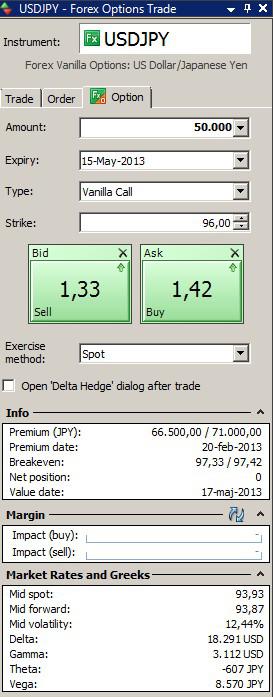The G20 recently met to discuss the so called “Currency Wars” or competitive devaluation of domestic currencies by central banks.
Group of 20 finance chiefs sharpened their stance against governments trying to influence exchange rates as they sought to tame speculation of a global currency war without singling out Japan for criticism. Two days of talks between G-20 finance ministers and central bankers ended in Moscow yesterday with a pledge not to “target our exchange rates for competitive purposes,” according to a statement. That’s stronger than their position three months ago and leaves Japanese officials under pressure to stop publicly giving guidance on their currency’s value. With the yen near its lowest level against the dollar since 2010, policy makers are attempting to soothe concern that some countries are trying to weaken exchange rates to spur growth through exports. The risk is a 1930s-style spiral of devaluations and protectionism if other countries retaliate to safeguard their own economies.
Although it was the main focus of their recent meeting, and their stance is characterized as ‘tough’, there wasn’t any action taken. They didn’t suggest penalizing Japan for their recent devaluation, nor did they suggest penalties against other countries who might follow suit. While they openly say that it’s not the right thing to do, by omitting any penalty they are giving central banks the green light to pursue this policy.
And because of this, the Yen got even weaker after the news:
“There’s renewed selling pressure on the yen and it’s a reaction to the G-20 statement,” said Adam Myers, head of foreign-exchange strategy at Credit Agricole Corporate & Investment Bank in London. “Everyone has woken up to the realization that the G-20 couldn’t criticize Japan when many other countries are manipulating their own currency.”
Then today, ECB president Mario Draghi said that public leaders shouldn’t even discuss the topic, and the currency wars were an overblown phenomenon, that recent Forex movement was mostly due to global macro factors, not central bank intervention:
I find really excessive any language referring to currency wars,” he said. “I urge all parties to exercise very, very strong verbal discipline. I think the less we talk about this the better.”
“Looking at the nominal and real exchange rate of the euro, we see that by and large, it is around its long-term average.”
Earlier on Monday, Ewald Nowotny, another ECB policymaker, said that recent currency movements were not reason to cause alarm.
“There is a euro appreciation against the yen but not to a dramatic extent,” he told reporters.
Reinforcement of trading strategy
Last week we suggested a strategy to capitalize on the currency wars going long XAU/JPY. The comments of the G20 reinforce this strategy; they are sending the markets the message they will allow the currency wars to continue. The G20 is really the only group that could put an end to such a practice. It also confirms the continuation of likely Yen decline. The next key date determining the fate of the Japanese Yen (FXY) is March 19th when a new BOJ governor will be selected:
The main focus for the yen now is on who will be appointed to replace BOJ Governor Masaaki Shirakawa, who will step down on March 19, Morgan Stanley analysts led by Hans Redeker in London, wrote in the note to clients published Feb. 16. Abe is likely to nominate Asian Development Bank President Haruhiko Kuroda, who is set to pursue the government’s anti- deflation course, though if he nominates former BOJ deputy governor Toshiro Muto, that may trigger the yen to retrace losses back to 90 per dollar, Morgan Stanley said.
Traders who are in the Yen trade should watch this date as it could cause the Yen decline to continue, or possibly peak and reverse if Muto is selected.
The Fed
The US Federal Reserve announced QE4 before the new year, which wasn’t really big news at the time considering the Fed had already signaled they would print an unlimited amount of US Dollars and keep interest rates steady until at least 2014. Since then, the USD has been down against most currencies, with the most notable exception being the Japanese Yen .
Trading currency wars with options
There are many way to trade the currency wars and protect a portfolio from inflation other than going long XAU/JPY. Each strategy has it’s own risks, for example Gold is a great way to hedge the devaluation of any currency, but Gold is subject to its own fluctuations for reasons such as supply or big sellers.
Call on USD/JPY
One direct way to bet on a currency decline is to buy an option on the currency pair. In the case of USD/JPY, if a trader wanted to bet on the continued yen decline, the best option would be to buy a call at least 100 pips away from the current price at least 3 months into the future.
For example, a vanilla call for 50,000 units of USD/JPY at a strike price of 96 expiring May 20th 2013 would cost approximately $744 USD. Once paid, the trade cannot lose more than that amount. However, as the USD/JPY advances, the option will become more and more valuable. Currently out of the money, the option would be most profitable if USD/JPY advanced to a price greater than 96 which would make it in the money. Any movement significantly above 96 such as 97 or 98 would make it deep in the money. Deep in the money options appreciate at a faster rate than the underlying, so any in the money move would prove to generate more profit for the trade than by just buying USD/JPY outright. This function is known as volatility smile.
The other benefit of using an option is that it doesn’t eat up any margin. In the example above, $744 would be debited from your trading account. If the option declines in value, you can’t lose more than the $744. But if it increases, it would show as a profitable trade just like any other type of trade that’s still open.

The USD/JPY call option is certainly not the only strategy to invest in to protect against the devaluation of currencies and to capitalize on the currency wars. It just so happens to be one of the most clear at the moment, considering the G20’s lack of commitment of real action to stop the currency wars, and considering Japan’s commitment to devalue its currency.
(Forex Risk Disclosure – Click here to read)
The risk of loss in trading foreign exchange markets (FOREX), also known as cash foreign currencies, or the FOREX markets, can be substantial.









